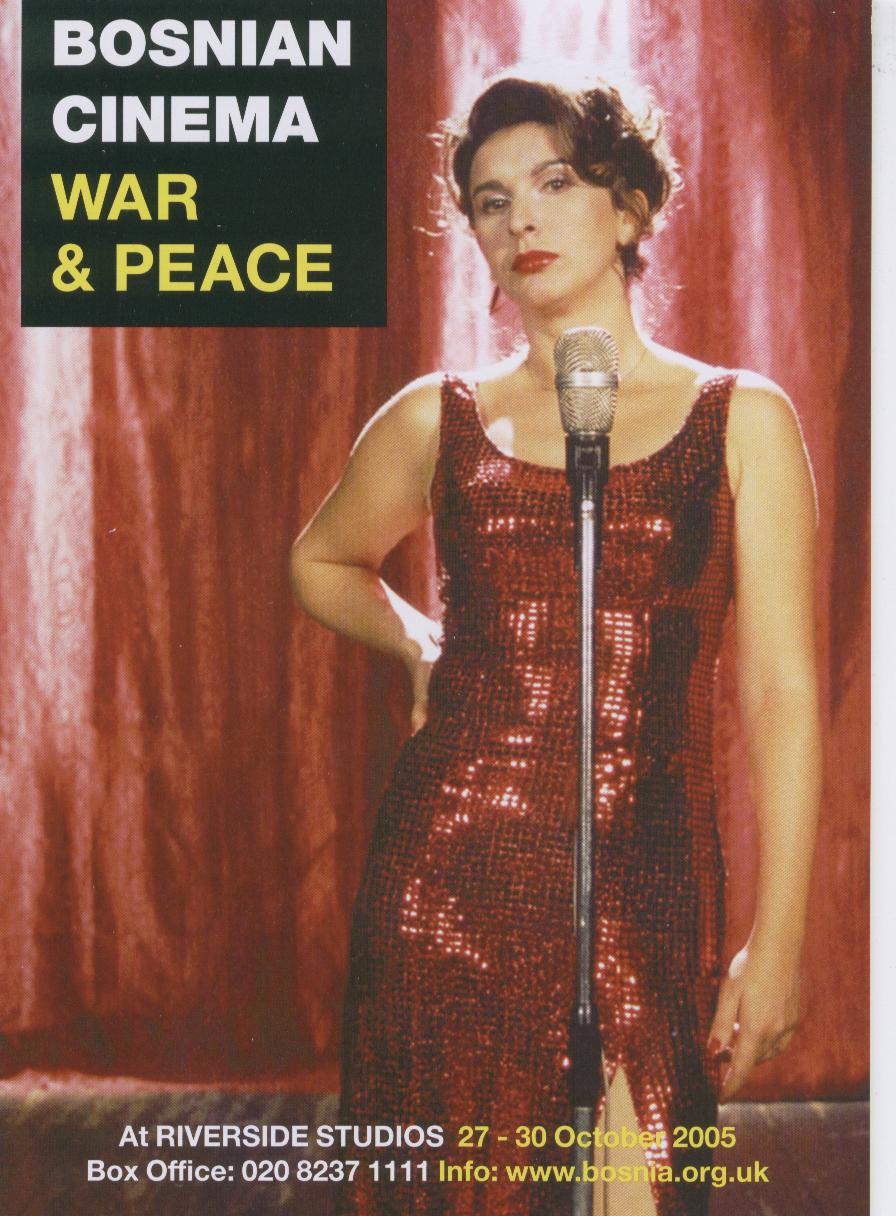 |
Bosnian Cinema: War & Peace
by Helen Walasek

The Bosnian Institute's successful festival of cinema by Bosnian film-makers recently closed in London.
The Bosnian Institute presented ‘Bosnian Cinema: War & Peace’, its second festival of films by Bosnian film-makers, between 27 and 30 October 2005 at Riverside Studios, London. In the late 1960s Bosnia-Herzegovina was recognised as one of the most prolific centres of film-making in the former Yugoslavia. The war and siege of Sarajevo between 1992-1995 curbed feature film production in newly-independent Bosnia, but inspired innumerable shorts and documentaries. In October 1995 the guns fell silent; four months later shooting began on Bosnia's first post-war feature film. Since then Bosnian cinema has seen a remarkable resurgence, regaining its reputation for creative film-making and winning major international awards. No Man's Land by Danis Tanović consolidated the rebirth of cinema in Bosnia in 2002, when it was awarded an Oscar for Best Foreign Language Film. Special guests were film-maker and producer Ademir Kenović, award-winning director of Kuduz and Perfect Circle and Mirsad Purivatra, director and founder of Sarajevo Film Festival.
The festival opened with Pjer Žalica's latest work Days and Hours ('Kod Amidže Idrize'), while the same director's film Fuse ('Gori Vatra') played to a packed house and was followed by a question and answer session with Ademir Kenović, the film's producer and Laura Mulvey, doyenne of feminist film studies. On Saturday 29th October an intense and fascinating panel discussion took place between Mirsad Purivatra, Ademir Kenović, young UK-based Bosnian film-maker Samia Karamehmedović and Roger Clarke, film critic of The Independent and a recent visitor to Sarajevo Film Festival. Chairing the panel was Fiona Lloyd-Davies, an award-winning documentary film maker and journalist whose most recent production was Looking for Karadžić. The panellists examined how film has been an important factor in raising issues about the recent war. Feature films such as Fuse have been seen by hundreds of thousands of people both in Bosnia-Herzegovina and across the region, and were a valuable tool in breaking down artificial barriers between people. Mirsad Purivatra told the audience how Sarajevo Film festival had acted as an agent of re-integration in Bosnia, for instance through their innovative Children's Programme by which thousands of children from across Bosnia were brought to Sarajevo to see films and - just as importantly - to meet each other.
|